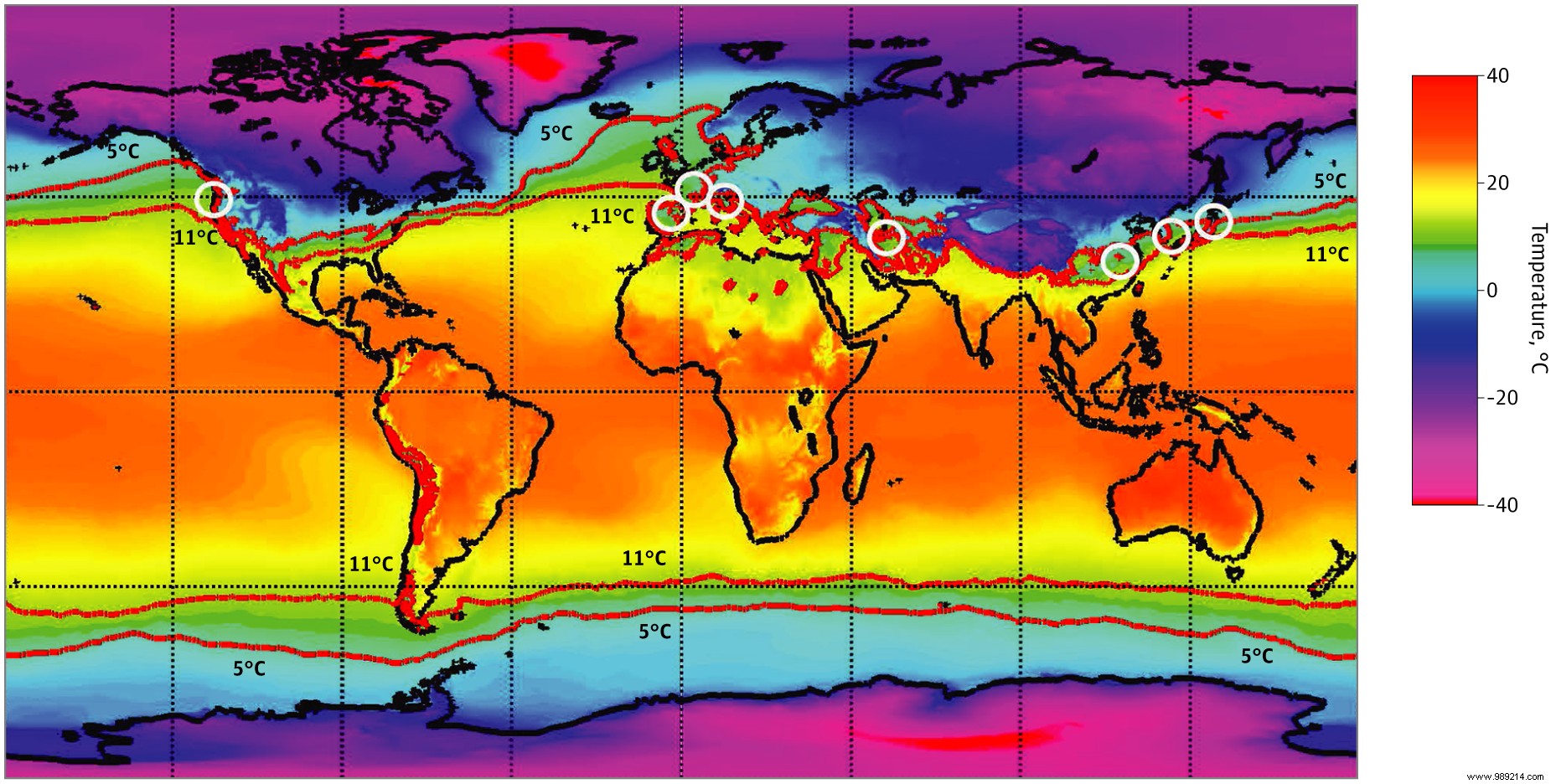If the Covid-19 epidemic seems to be weakening in Europe with the arrival of sunny days, a new study is cause for concern. Indeed, US researchers have established for the first time the seasonality of the coronavirus. Unfortunately, it is quite possible that a new wave of Covid-19 will rage this winter in the temperate countries of the northern hemisphere.
SARS-CoV-2 (Covid-19) spreads more in dry, cooler climates. Published in JAMA Network Open on June 11, 2020, a study by the University of Virginia (USA) estimates that the coronavirus has hit cities located in a band of latitude between 30° and 50° north (see map below). Among these cities, we find Wuhan (China), Tokyo (Japan), Daegu (South Korea), Qom (Iran), Milan (Italy), Paris (France), Seattle and Washington (United States) as well as Madrid ( Spain).

“The distribution of important households in the COVID-19 in terms of latitude range, temperature and humidity levels matched the behavior of seasonal respiratory viruses" can we read in the study.
According to the leaders of the study, the cities cited experienced temperatures between 5 and 10.5 degrees C and a relative humidity between 44 and 84% at the time of the spread of Covid-19. In addition, the study mentions the case of 42 other cities that have visibly avoided the worst. However, these are either to the south or to the north of this band of latitude.
Researchers have reported that coronaviruses that cause colds in humans are subject to strong winter seasonality. The fact is that these same coronaviruses are undetectable during the summer months. In other words, the Covid-19 could well also be seasonal, just like the influenza raging in winter between December and April in countries of the northern hemisphere. This same flu reaches the southern hemisphere between June and September. In the tropics, the absence of winter rhymes with the appearance of several strong episodes (waves). The researchers believe that Covid-19 could continue to operate according to this pattern in the future.
The study leaders also mentioned another possibility. Public health efforts could eradicate Covid-19 in the tropics and the southern hemisphere, as was the case with SARS in 2003. However, the current rise in cases worldwide makes this eventuality less and less likely. Finally, monitoring Covid-19 in countries such as New Zealand, Argentina, Chile and South Africa could help northern countries prepare for a new epidemic wave.